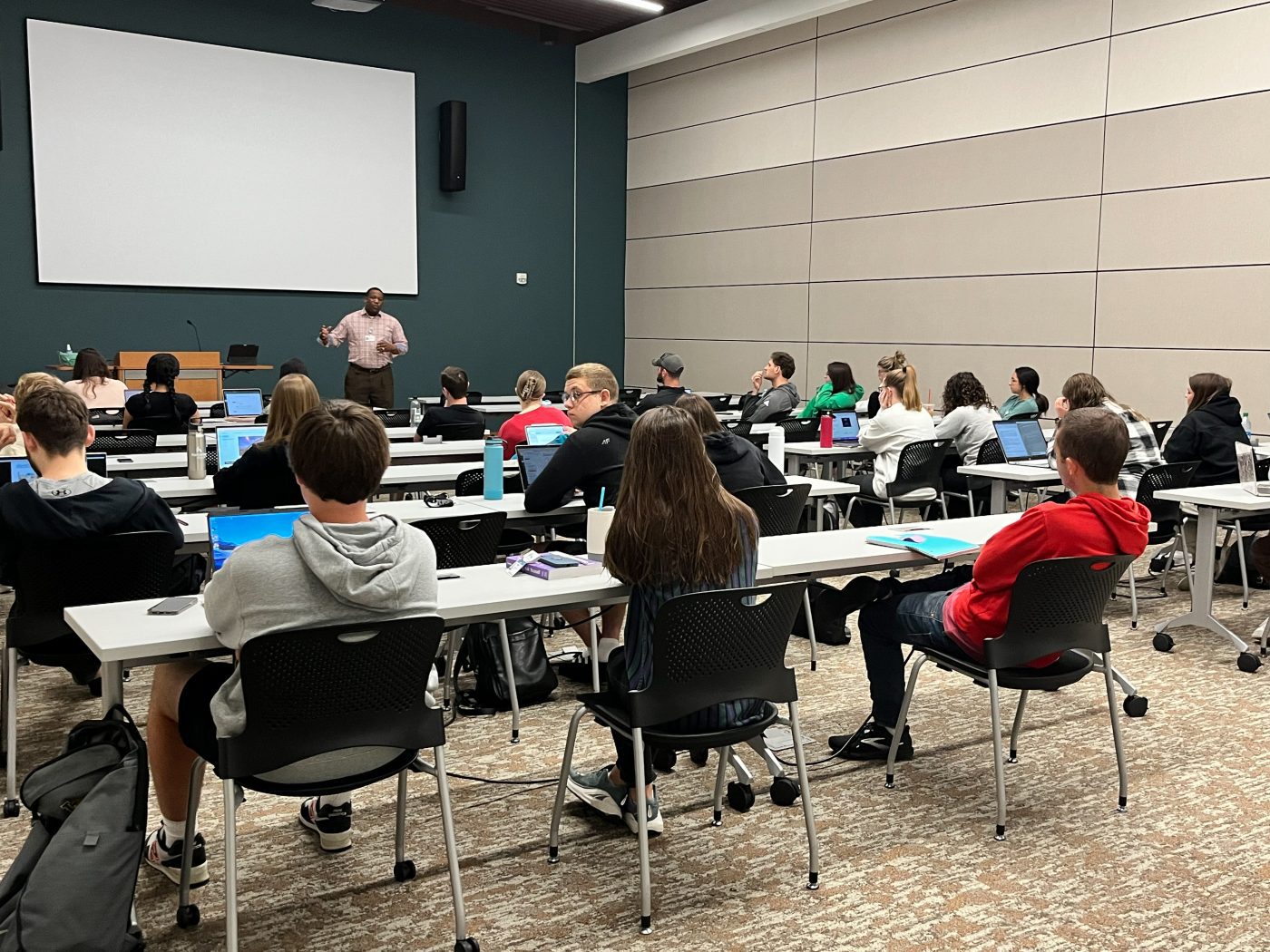Sociology Professor Helps Students See Beyond Themselves

Concepts rooted in sociology are important for future healthcare professionals to consider. Professor Johannon Tate brings these concepts to life and proposes questions to his classes that nudge them to consider their own biases, opinions, and misconceptions. During a recent class, students were engaged as he poised rhetorical questions regarding things such as affirmative action and equality versus equity in a society.

Professor Tate says the general premise of the class is to study society, its people and all its moving parts. He says, “Sociologists often use what are known as social theories to view and discuss their findings to bring about understanding concerning why social phenomena exist and their individual and collective impact on society on macro and micro scales.”
These theories and impacts on society are a vital part of a healthcare provider’s toolbox as they serve diverse patients. In his recent class, he led a discussion about intersectionality and how it helps researchers and sociologists with being able to understand how certain phenomena may impact different groups of people differently. Often intersectionality is used to discuss discrimination or disadvantage within specific groups of people.
He eloquently takes these larger concepts and breaks them down into more digestible pieces by asking his students questions about their own experiences. The sociology material paired with his knowledge and experiences help the students build critical thinking skills as well as self-awareness and understanding.

Becoming a healthcare provider who understands these concepts as they serve others is an essential part of our curriculum. Professor Tate believes, “Learning as much as we can about diverse groups of people positively impacts each medical professional’s ability to care, exhibit and extend beneficence to those they encounter. Understanding why a certain population of people only come to the hospital when an emergency exists rather than for routine medical care can help that professional understand how a condition that could be easily preventable ends up becoming more serious.”
He emphasizes he presents classes not as a lecture but as a seminar where students have already interacted with the course material prior to class, so they arrive ready to ask questions and discuss. He says, “Their reading should spark ideas they can speak about during the facilitated discussion in class.”

The goal of the discussion is not to end on agreement but to make space for awareness and differing views. He notes there have been several “aha” moments where a student was speaking, and it sparked a positive response from one or more other students in the class. Healthy debates also ensue in his classes when students don’t see issues from the same lens. He says, “I welcome those types of discussions as well because it allows the class to understand different thought processes and perspectives.”
Professor Tate says he is especially fond of opportunities to engage, instruct and even learn from the diverse population of students at Kettering College. He says, “I enjoy helping students step outside of their comfort zone to see different aspects of the world around them and how they can positively impact the world personally and professionally.”
Print This Page